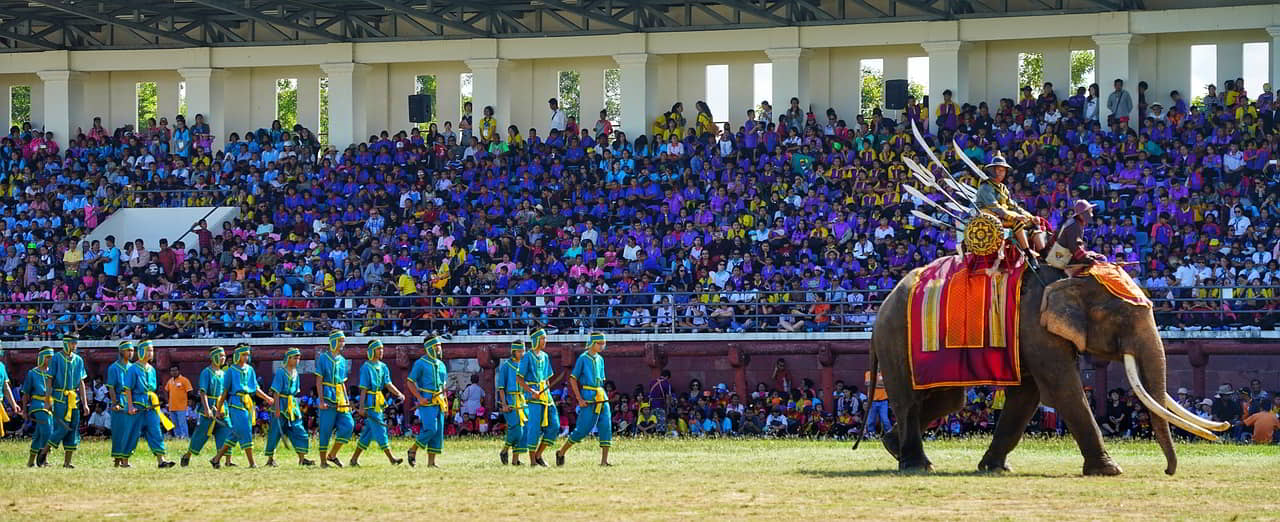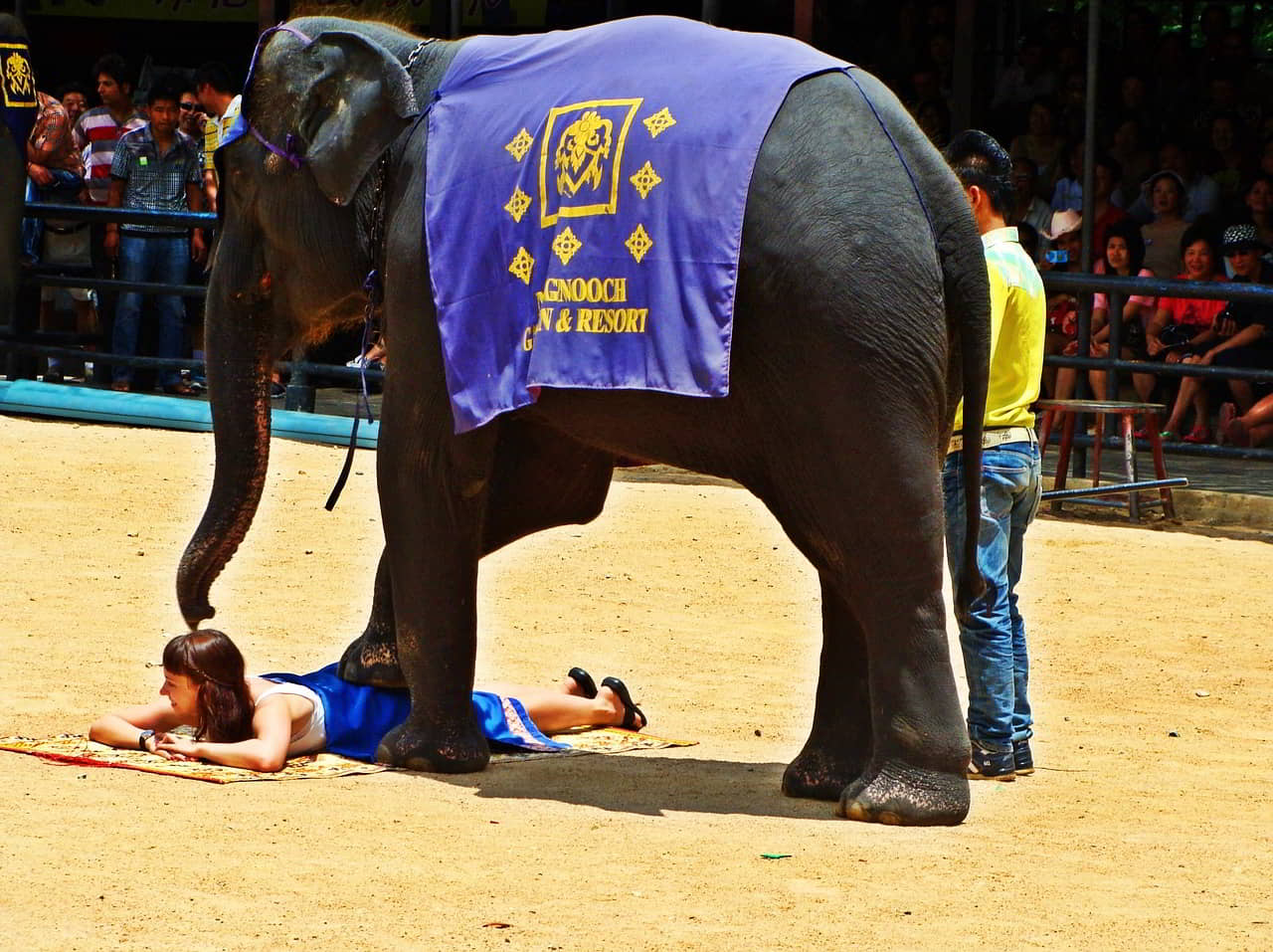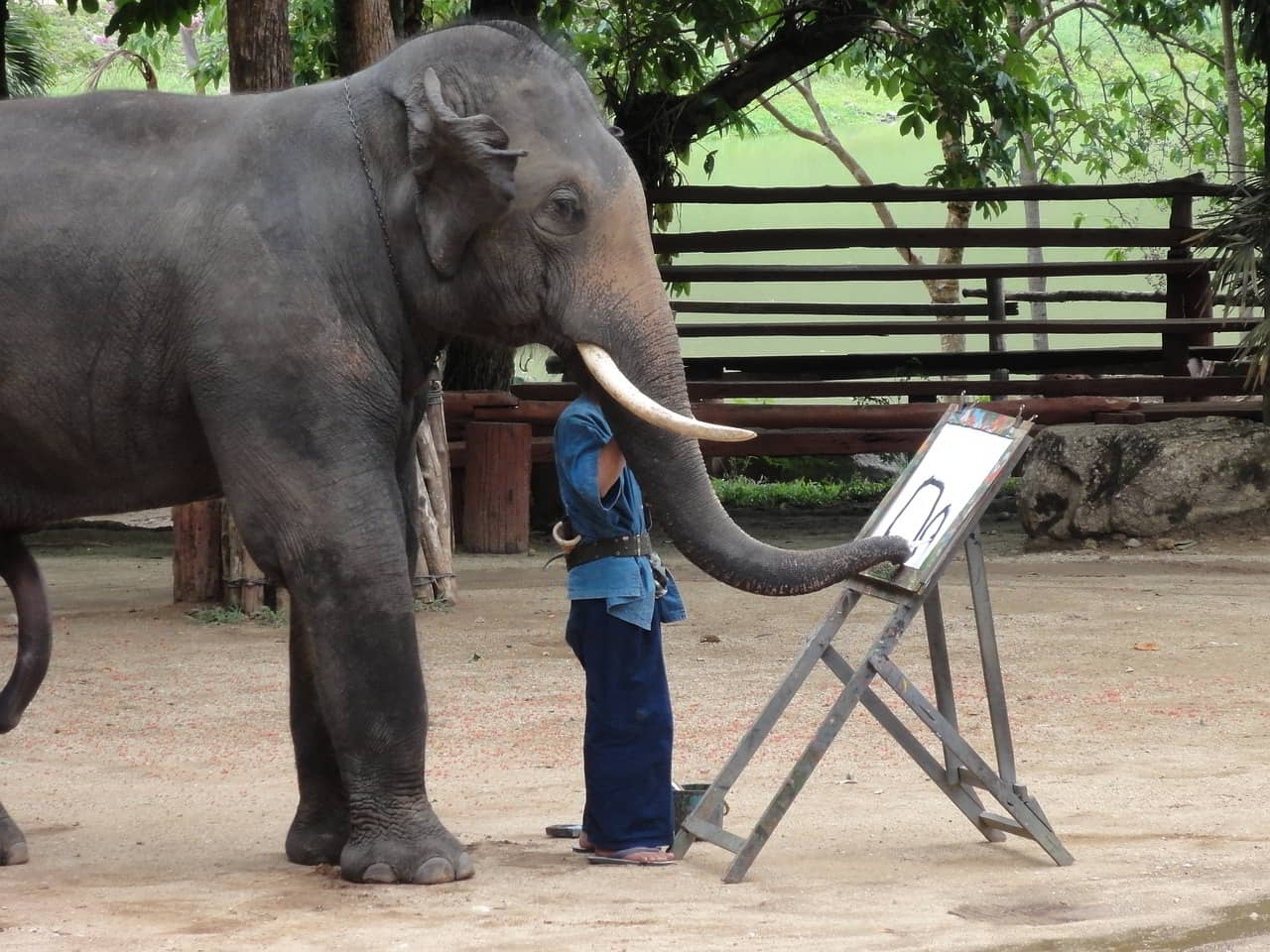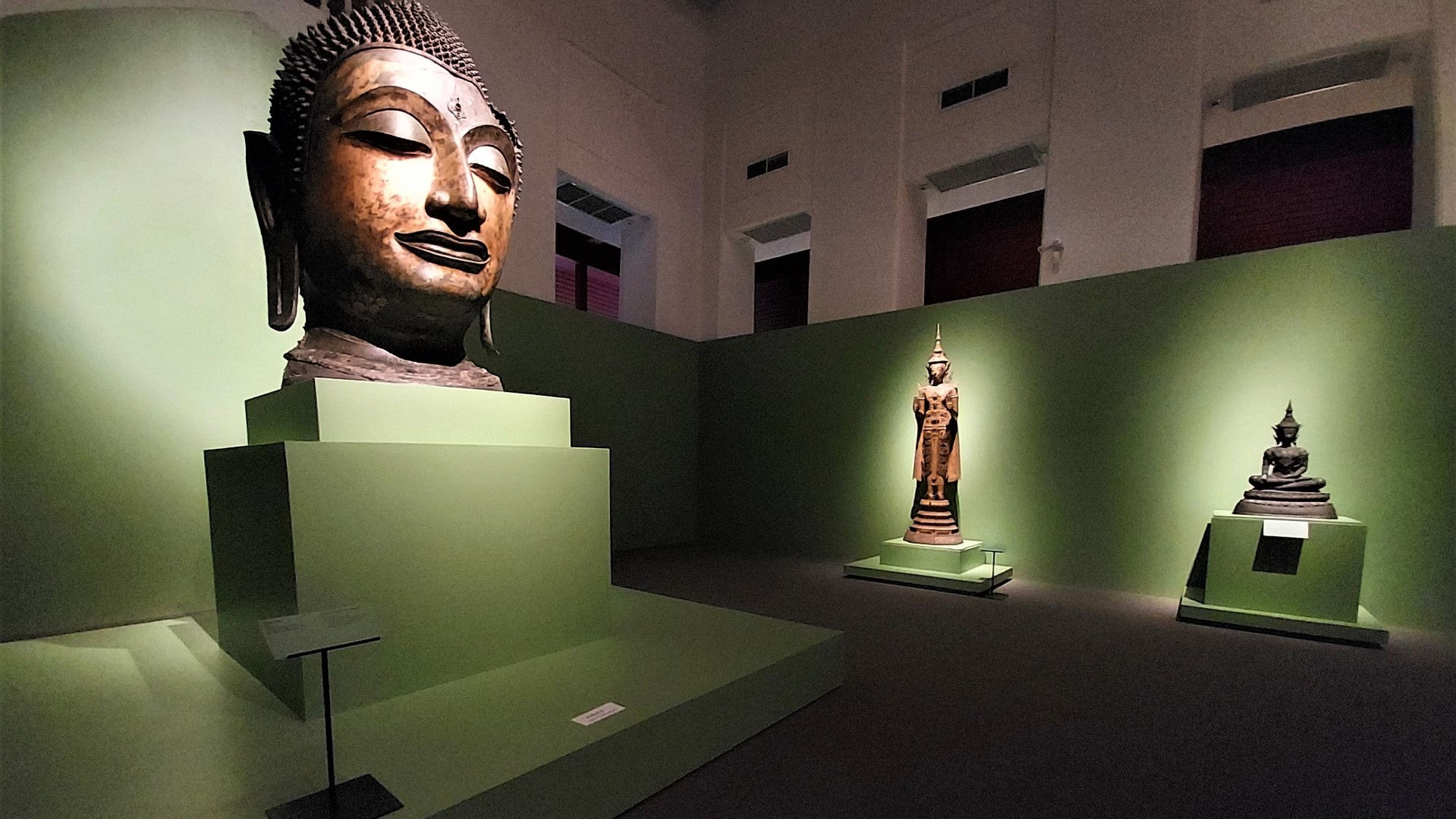
Surin Elephant Festival 2025 — History, Debate & Travel Guide
Every year, Surin in northeastern Thailand celebrates its deep bond with elephants through colorful parades and lively performances. Here’s everything you need to know about this iconic event.

History of the Surin Elephant Festival
Created in the 1960s, the Surin Elephant Festival was part of a cultural policy to promote rural traditions and showcase the ancient skills of elephant training.
The Surin region has long been known for its mahout heritage — where elephants were once essential for farming and forest work.
As modernization reduced their agricultural role, elephants became central to tourism and cultural events, reflecting a shift from utility to entertainment.
How the Festival Unfolds

The opening ceremony is held on November 15, but the main celebration begins on November 21 with a parade of over 300 elephants through Surin’s streets, where they are served a giant breakfast of fruits and vegetables.
The festival continues at the Elephant Stadium with performances such as tug-of-war contests (elephants vs. soldiers), football matches, artistic painting displays, and skill demonstrations.
On Sunday, a traditional reenactment of a historic battle between the Siamese and Burmese empires takes place — with Siam, naturally, emerging victorious.
The same weekend also includes the Mueang Chang half-marathon, along with cultural performances, food stalls, and local craft markets.

Useful Information — Surin Elephant Festival 2025
The Surin Elephant Festival always takes place on the third weekend of November, from November 21 to 23, 2025.
Events are held at the Si Narong Stadium.
Entrance fees:
- Standard ticket: around 100 THB per person (uncovered seating)
- VIP ticket: 400–500 THB per person (shaded seats)
Accommodation in Surin is limited — book well in advance, as hotels fill up quickly.
Travel Tip:
Arrive a day early to witness the elephants’ arrival in town — some travel up to 100 km on foot, making this a more authentic and emotional experience.

Should You Attend the Elephant Festival?
This question deserves reflection. Once celebrated without controversy, the Surin Elephant Festival now raises ethical concerns about animal welfare.
Elephant training in Thailand is tied to the phajaan, a traditional but violent process of domestication. Attending such festivals can be seen as endorsing these practices.
While the event remains deeply rooted in local culture, travelers should make informed choices about participating. Awareness and reflection mark the beginning of responsible tourism.
Surin Elephant Museum — Understanding the Relationship Between Humans and Elephants
Opened in September 2024, the Surin Elephant Museum offers a comprehensive look at the bond between humans and elephants through interactive exhibits and educational displays.
The museum features four main zones:
- Chang Luang Elephant House — historical use of elephants in warfare and daily life
- Life of Elephants — biology, behavior, and ecology of Asian elephants
- Primitive Elephants Zone — fossil displays tracing elephant evolution
- Elephant Gallery — traditional crafts, artworks, and historical artifacts
Practical Information — Surin Elephant Museum
- Opening days: Wednesday to Sunday (closed Monday & Tuesday)
- Hours: 9:00–12:00 and 13:00–16:00
- Admission fees:
- Thai visitors: 30–50 THB (children/adults)
- Foreign visitors: 100–200 THB (children/adults)
More Events and Festivals in Thailand
FAQ — Surin Elephant Festival 2025
When does the Surin Elephant Festival take place?
From November 15 to 26, 2025, with main events on November 21–23 at Si Narong Stadium.
What are the main highlights?
Elephant parades, shows, cultural performances, a half-marathon, and a large local fair.
Is the festival ethical?
It’s a matter of debate — while the event celebrates tradition, it also raises concerns about animal welfare and elephant training methods.
Where can I learn more about elephants in Surin?
At the Surin Elephant Museum, which explores the cultural, historical, and scientific aspects of elephants in Thailand.




